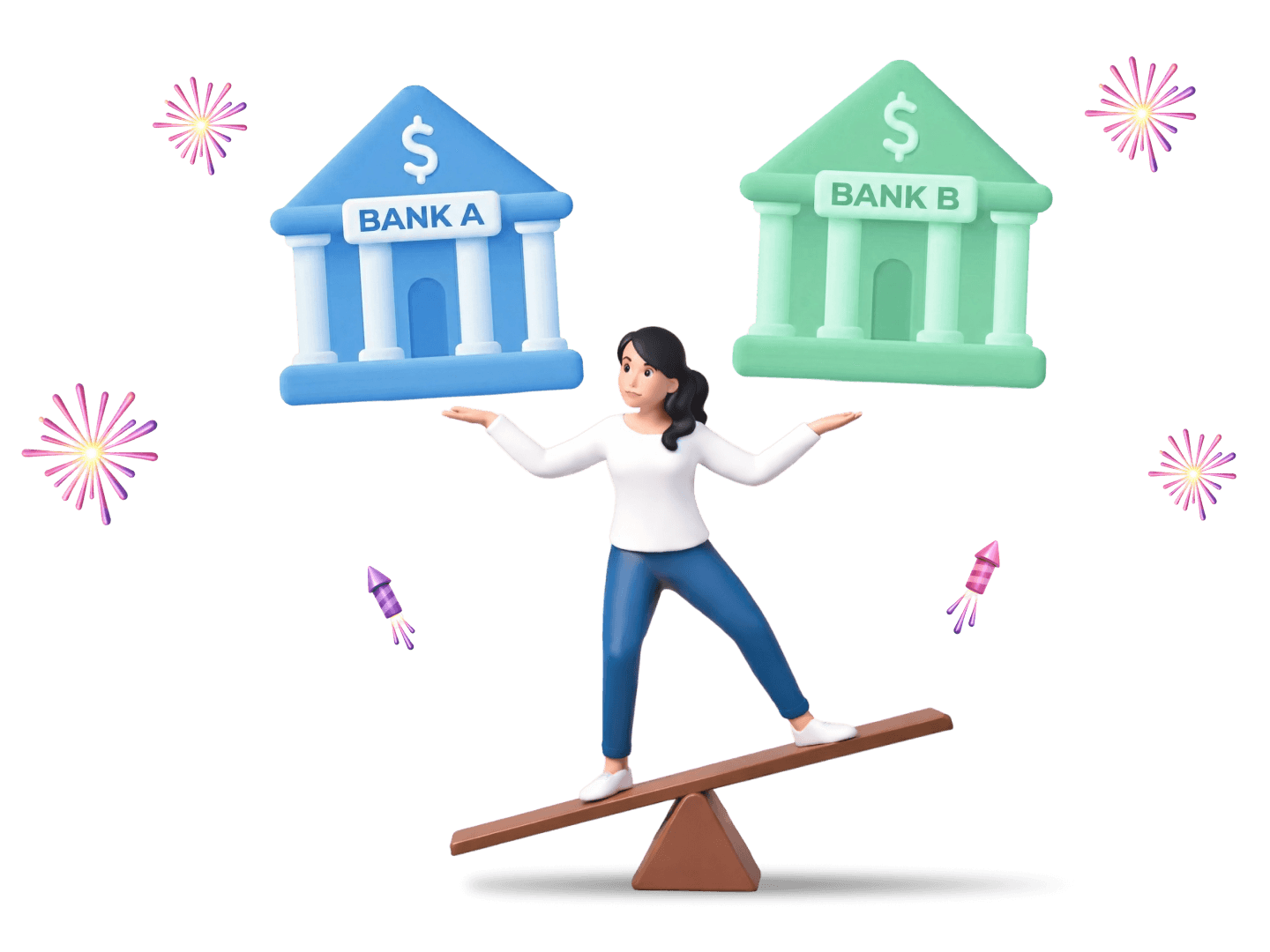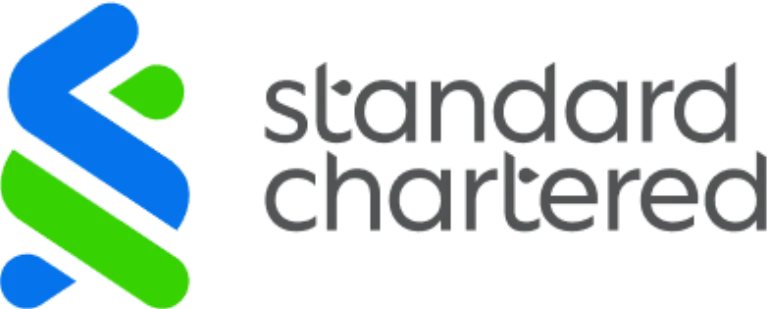Can You Get A Personal Loan Without Income Proof In Singapore?
Updated: 23 Sept 2025
Written bySingSaver Team
Team

The information on this page is for educational and informational purposes only and should not be considered financial or investment advice. While we review and compare financial products to help you find the best options, we do not provide personalised recommendations or investment advisory services. Always do your own research or consult a licensed financial professional before making any financial decisions.
If you want a personal loan but don’t have income proof, getting approval from lenders such as banks can be challenging.
However, the good news is that it’s not the end of the world; you can still qualify for a personal loan even if you’re a low-income earner, self-employed person, or don’t have a regular income. Let’s discuss below.
SingSaver Personal Loans Cashback Offer
Enjoy interest rates as low as 1.08% p.a. (EIR from 2.09% p.a.) and up to S$1,900 in cashback when you apply for a personal loan via SingSaver. Valid till 1 March 2026. T&Cs apply.
Is it possible to get a personal loan without income proof in Singapore?
In case you didn’t know, declaring your earnings is a standard requirement for getting a personal loan from a bank. Indeed, the amount you can borrow from a bank is largely dependent on your income.
Typically, Singaporeans and Singapore Permanent Residents require an annual income of at least S$30,000 to be eligible for a personal loan. For foreigners, the minimum annual income requirement is usually S$40,000 to S$60,000.
That said, it’s technically still possible to get your personal loan approved even if your annual income falls below that benchmark.
However, other factors, such as your relationship with the bank and credit score, will also come into play. If your credit score is excellent, banks may be willing to offer you a loan even if you’re a low-income earner but at a higher interest rate. The amount you can obtain varies from bank to bank.
How to get a personal loan without income proof
As mentioned, it’s possible to get a personal loan without proof of income. But there are ways to compensate for the lack of income proof.
Provide your Notice of Assessment (NOA)
Unlike salaried workers who only need to submit their CPF contribution history, self-employed persons have to submit their latest income tax NOA as proof of income. The NOA is your tax bill from the IRAS, and features your income, tax, and contribution history in a year.
Copy for your NRIC or Employment Pass (front and back)
You’ll also need to provide identity proof to verify your ID; NRIC for Singaporeans or Singapore Permanent Residents and Employment Pass for foreigners.
Get or maintain a good credit score
Your credit score is one of the deciding factors in getting a personal loan, as it reveals whether or not you’re a creditworthy customer. Therefore, having a good credit score can help increase your chances of securing a loan.
A credit score is a four-digit number derived from the Credit Bureau Singapore (CBS). It is used by lenders to indicate an individual's likelihood of repaying debt and the probability of default.
Your credit score consists of your financial activity and credit history with banks and finance companies. These include your past payment history and credit or loan applications.
Lenders can assess your risk profile based on your credit score, which is between 1,000 and 2,000.
The highest score is 2,000, while those with 1,000 are most likely to default on payments. A bad credit score ranges from 1,000 to 1,723, with an “HH” rating.
Things that can improve your credit score include paying your credit card or loan payments on time, staying within your credit limit, keeping your loan balances low, and having low-risk credit products to prove that you’re managing them well.
On the other hand, things that can harm your credit score include missed or late payments, having multiple credit facilities (credit cards, personal loans, personal lines of credit, etc.), making multiple loan enquiries in quick succession, and having no credit history.
Apply under a joint application
You can also increase your chances of getting a loan by making a joint application with someone else.
The joint applicant can be your spouse, children, relative, or friend, and ideally, they should have a good financial standing (i.e., a good credit score and income). Your co-applicant will also be the guarantor or cosigner and share the responsibility of repaying the loan.
Things to consider before applying for a personal loan
Avoid making multiple loan applications
Each time you make a loan application with a bank or financial institution, they will pull your credit report from your records. Having too many enquiries will reflect that you’re “credit hungry”, in financial difficulty, or trying to take on more debt, thus increasing your risk profile.
Interest rate
The interest rate is the main deciding factor in overall loan affordability. For obvious reasons, the lowest interest rate is preferable to higher interest rates, but you should consider the effective interest rate (EIR) over the advertised rate.
That’s because the EIR considers the cost of borrowing, which includes the administrative fees, as well as other factors such as the number of instalments, frequency of instalments, and the instalment amounts, giving you a more accurate picture of the cost of a loan.
While going with the lowest EIR may be a wise move, every loan is structured differently. For example, a longer loan usually has a lower EIR because you’re paying a lower amount each month. However, this also means that you’re paying more interest overall.
In contrast, a loan with a lower EIR usually means a shorter tenure, which results in higher monthly instalments. This isn’t ideal if you have cash flow problems.
Look out for fees
Aside from the interest rate, you should also be aware administrative costs of borrowing. Some banks charge a processing fee which can increase the cost of your loan. Other fees to look out for include late payment fees, early settlement fees, and cancellation fees.
Consider a balance transfer
A balance transfer is a type of unsecured short-term loan in which you transfer the outstanding balance on your credit card(s) to another credit card of another bank, or a percentage of your available credit card limit to your deposit account at a low or 0% interest rate.
In other words, you can consolidate all your credit card debts in one account, making it easier to keep track and manage your debts.
Balance transfers offer more flexibility in repaying your debt, and you can also avoid the sky-high interest rates of credit cards or credit lines.
While a balance transfer can help reduce the interest charges on your existing debt, it doesn’t eliminate it; you still need to make a minimum payment every month to clear your debt. Furthermore, a one-time processing fee is charged.
CIMB Personal Loan Welcome Offer
Enjoy low interest rates from 1.60% p.a. (EIR from 3.07% p.a.) when you apply for a CIMB Personal Loan! Valid till 1 March 2026. T&Cs apply.
1. Go to DBS site and click “Apply now” under Personal Loans
2. Log in using your card or ibanking details
3. Fill out and submit all required documents
4. An SMS will confirm if your loan has been approved
5. An approval letter will be mailed to you as well
Note: Applications can be done also via Singpass Myinfo on DBS' website
- Enjoy personalised rates from as low as 1.48% p.a. (EIR 2.84% p.a.) with full processing fee rebate
- Borrow up to 4x your monthly salary if you earn less than S$120,000 annually, or up to 10x if you earn more than S$120,000 annually
- Min. loan amount of S$500
- Tenure: 6 months to 5 years
- Min. income for Singaporeans/PRs: S$20,000 p.a.
- Apply via SingSaver and get your loan approved and disbursed instantly into your DBS/POSB account
- Processing fee: From 1% of the approved loan amount
- Early repayment fee: S$250
- Late payment fee: S$100 for personal loan on DBS/POSB credit card, S$120 for personal loan on DBS/POSB Cashline
1. NRIC (Front & Back)
2. CPF contribution history statement (latest 12 months)
3. Latest 1 year Income Tax Notice of Assessment (NOA)
4. Latest computerised payslip or salary crediting into a DBS/POSB account
The information displayed above is for reference only. The actual rates offered to you will be based on your credit score and is subject to the provider’s approval.
1. Click “Apply Now” on UOB's website
2. Fill out the application and upload all necessary documents
3. Wait for an offer from UOB
Note: Get instant approval and cash disbursed into your UOB accounts for applications submitted between 8am and 9pm
- Enjoy interest rates as low as 1.38% p.a (EIR from 2.65% p.a.)
- No processing fees
- Get instant approval and cash disbursed into your UOB accounts for applications submitted between 8am and 9pm
- Min. loan amount of S$1,000
- Min. income for Singaporeans/PRs: S$30,000 p.a.
- Read our full review of the UOB Personal Loan
- Foreigners are not eligible for UOB Personal Loan
- Cancellation fee: S$150 or 3% of outstanding approved loan amount, whichever is higher
- NRIC (Front & Back)
- For salaried employees: Last 3 months’ computerised payslip; or Latest Income Tax Notice of Assessment with latest 1 month’s computerised payslip; or latest 6 months’ CPF statement (for Singaporeans or PRs)
- For self-employed persons: Last 2 years’ Income Tax Notice of Assessment
The information displayed above is for reference only. The actual rates offered to you will be based on your credit score and is subject to the provider’s approval.
1. Go to Standard Chartered's website and click "Apply Now” button under Personal Loans
2. Fill out an application and submit all required documents
3. Wait for approval of personal loan from Standard Chartered
- Enjoy low interest rates from 1.80% p.a. (EIR: 3.44% p.a.) for longer tenures. Get instant loan approval and cash disbursement in as quick as 15 minutes to your designated bank account.
- Enjoy a 5-year annual fee waiver on your Standard Chartered Platinum Visa credit card
- Min. loan amount of S$1,000
- Max. loan amount of up to S$250,000
- Allow for change of loan tenure.
- Allow for flexible repayment without late fees.
- Waiver of S$50 annual fee (from 2nd year till expiry of loan) if all instalments for the year are paid on or before the due dateMax. loan amount of up to 4X monthly salary, capped at S$250,000
- Read our full review of the Standard Chartered CashOne Personal Loan
- EIR calculated is not yet inclusive of the first-year annual fee of S$199. Interest rate in your application will be based on your credit profile as determined by Standard Chartered.
- First year annual fee: S$199
- Early repayment fee: S$150 or 3% of the outstanding principal, whichever is higher
- Change of tenure: S$50 per change
- Late payment fee: S$100
- Copy of Passport (with at least 6 months' validity), including the page with address displayed (where applicable)
- Copy of your Employment Pass
- Any ONE of the following documents:
- Latest utility bill, rates or tax bill
- Latest bank / credit card statement (e-Statements are accepted)
- Rental agreement showing your address
- Latest mobile phone statement or pay-TV statement
- Letter from employer stating current address
- Government-issued document stating current address (e.g. IRAS, CPF, ICA)
No documents required for Singaporeans / PRs applying via SingPass.
For foreigners applying via SingPass, please prepare the following:
The information displayed above is for reference only. The actual rates offered to you will be based on your credit score and is subject to the provider’s approval.
1. Download the Trust App and navigate to the Instant Loan section
2. Fill out an application and submit all required documents
3. Wait for approval of personal loan
- LOWEST Interest Rates in the Market from 1.56% p.a. (EIR 3.00%* p.a.) with no processing or hidden fees (until further notice)
- Flexible repayments. Choose your desired personal loan amount and tenure. Repay with fixed instalments over 3 to 60 months.
- Fast approval in 60 seconds.
- *EIR calculated based on loan amount of S$90,000 and tenure of 60 months from 1 Jan 2024. Maximum EIR may be up to 22.34% p.a. based on your personal credit profile.
- Deposit Insurance Scheme: SGD deposits of non-bank depositors are insured by the SDIC, for up to S$100,000 in aggregate per depositor per Scheme member by law.
- Min. age requirement: 21 years old
- Minimum annual income of S$30,000 for Singaporean citizen or PR or S$60,000 for foreigners with valid work pass
1. NRIC (Front & Back)
2. Salaried employees: Latest month’s computerised payslip or latest 6 months’ CPF contribution history statement
3. Self-employed individuals: Last 2 years’ Income Tax Notice of Assessment
4. Commission-based earners: Latest 3 months payslip or latest 6 months' CPF contribution history statement
The information displayed above is for reference only. The actual rates offered to you will be based on your credit score and is subject to the provider's approval.
1. Download the GXS app.
2. Click "Sign Up" for GXS FlexiLoan
3. Get your funds within minutes upon approval.
- No Fees Interest Rates from 1.88% p.a. (EIR from 3.47% p.a.).
- Apply in-app and get your funds in minutes
- A standby revolving credit line which you can draw multiple loans from, from as low as S$200
- Customisable loan tenure from 2 to 60 months depending on loan amount selected
- Flexibility to select your preferred repayment date
- No early repayment fee, plus save on interest when you repay early
- Interest is computed on a daily non-compounding basis
- In-app reminders to repay on time and avoid late interest charges
- Effective Interest Rate (EIR) is calculated based on an average loan amount of S$10,000 with a 36-month repayment period, from 1 Jan 2023 to 1 Jan 2026. T&Cs apply.
- Late interest is chargeable upon late repayment
The information displayed above is for reference only. The actual rates offered to you will be based on your credit score and is subject to the provider's approval.
Other FAQs
For a seamless experience, SingPass holders can apply via MyInfo so there are no documents required.
However, if you’re a low-income earner who is earning below the minimum income threshold requirement or a self-employed person, you can submit your Notice of Assessment (NOA) as part of your application.
Banks will assess your income when determining your loan amount, so the higher your income, the higher your loan amount. While you can submit your CPF contributions, your CPF statements won’t be taken into consideration. So it wouldn’t if you make voluntary CPF contributions to your contribute more to your CPF accounts.
If you apply via MyInfo on SingPass, no documents will be needed as your information will be prefiled. However, some banks may request for documents such as latest computerised payslip, six months of CPF contribution history statement, NOA, or commission statement from your employer.
About the author
SingSaver Team
At SingSaver, we make personal finance accessible with easy to understand personal finance reads, tools and money hacks that simplify all of life’s financial decisions for you.






